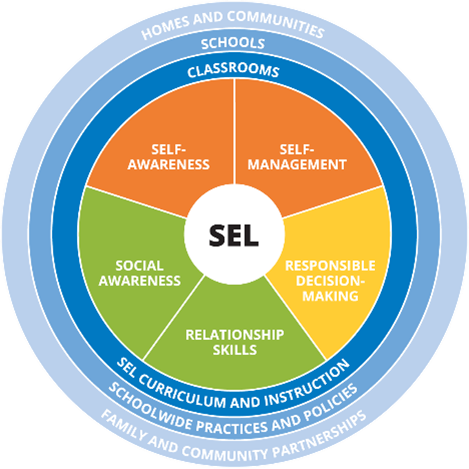Humanize your remote learning experience
Remember to be yourself. Your connections with your students are vital. Although your interactions will be different in a virtual environment, your students need you to behave the same way you always do. If you sing in class, sing in your videos or on your calls with your students. If you start every day with a current event, funny meme, or a joke, continue those routines. Your students need you to interact with them the way you always have (even more than they need the content that you teach them).
In addition to your own classroom routines, make sure that you honor the rituals and routines that your school community observes. Does your school begin its day with morning announcements, pledge to the flag, a prayer, or some other morning greeting? If so, find a way to honor that with your first calls of the day. Do you have a weekly assembly or chapel? How could you recreate that experience in a remote learning environment? Find ways to remind them that while they aren't physically at their school, they're still connected to the larger school community
Let go of perfection. Our natural tendency when change occurs is to try to make what we are currently doing exactly like what we are accustomed to doing. We'll assume our virtual classroom must run as smoothly as our physical classroom always did. We may feel a lack of control when things don't work as expected, and we may even feel like we failed at the end of a call with our students or when they submit an assignment to you and you see that many students didn't grasp the concept. Think back to when you first started teaching, you may have felt the same way. These feelings are natural, and you need to give yourself the room to make mistakes. With every call and every lesson, you'll find your new rhythm and ways in which you can maximize the time you have with your students and the lessons you provide them. Furthermore, it's okay to be vulnerable with your students and tell them you're nervous and unsure of how everything will work. As you navigate these uncharted waters, you can work with your students on finding ways to improve your remote learning environment, demonstrating for them a growth mindset and strengthening your sense of community even more.
Social and emotional impact
While your content is important, you also have the opportunity to reinforce social and emotional learning with your students. Students can practice self-awareness, self-management, social awareness, relationship skills, and responsible decision-making. When you meet with students, you can encourage them to share how they're feeling and how they think others are feeling. The more they discuss their feelings and empathize with others, the more socially- and self-aware they'll become. Working independently from home, students will have opportunities to self-manage and make responsible decisions. Finally, learning how to communicate with one another online and collaborating on projects virtually will build students' relationship skills.
Keep in mind how a quick switch to remote learning may affect your students, read about Trauma Informed Teaching, by Mark Sparvell, B.Ed., M.Ed.

Graphic © 2017 CASEL. All rights reserved. Learn more at https://www.casel.org